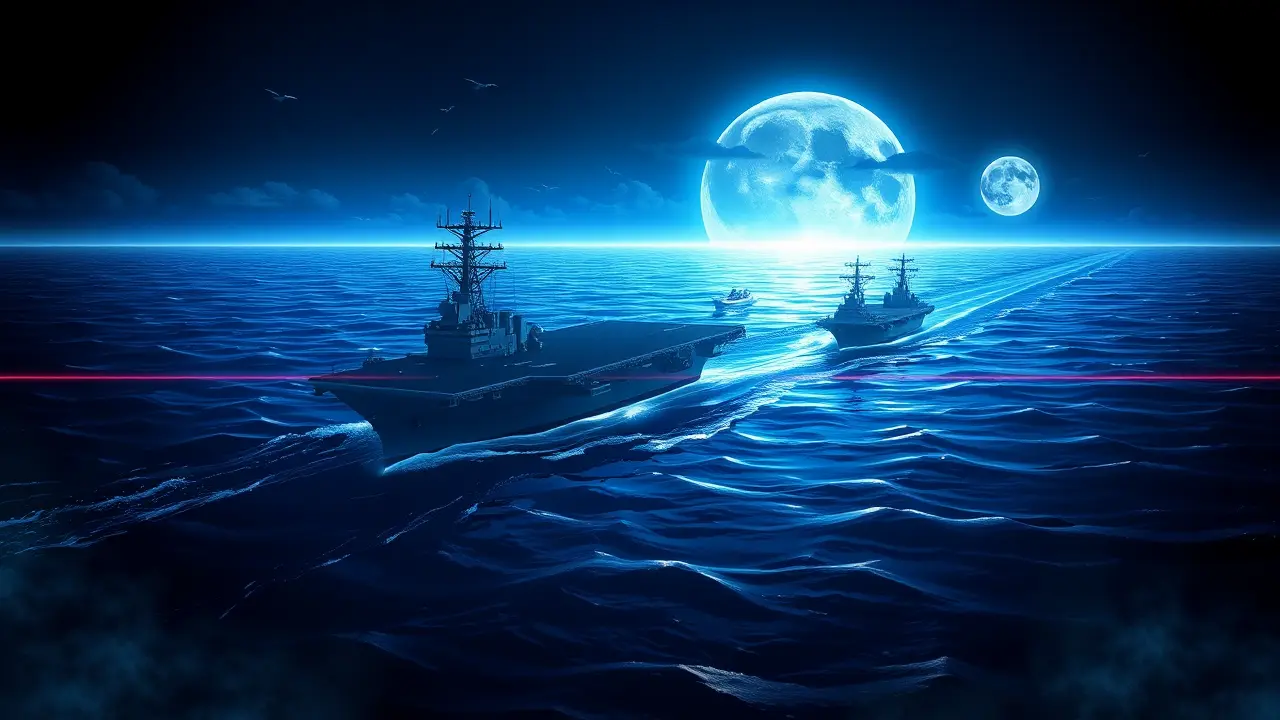
Hottest
Politicsconflict & defenseMilitary Operations
US Military Builds Up Naval Forces Near Venezuela
RO
Robert Hayes
13 hours ago7 min read1 comments
A formidable armada of American naval power is now converging in the Caribbean Sea, a stark military manifestation of the Trump administration's escalating geopolitical confrontation with the regime of Venezuelan strongman Nicolás Maduro. This strategic pivot, marked by the deployment of the crown jewel of the U.S. fleet, the nuclear-powered aircraft carrier USS Gerald R.Ford, signals a profound reorientation of Pentagon priorities. For decades, U.S. Southern Command (SOUTHCOM) operated in the strategic shadow of more pressing theaters in the Middle East and the Indo-Pacific, often described by analysts as a 'backwater' command where, as retired Colonel Mark Cancian of the Center for Strategic and International Studies notes, 'once in a generation something happened.' That generation is now. The arrival of the Ford and its attendant strike group—a floating city of firepower comprising fighter jets, early-warning aircraft, helicopters, and a vast arsenal of missiles and electronic warfare systems—alongside vessels like the Iwo Jima, Gravely, and Stockdale, some armed with long-range Tomahawk cruise missiles, represents the most significant U.S. military buildup in the Western Hemisphere in three decades, unrelated to disaster relief.This deployment is not an isolated maneuver but the sharp end of a broader strategic spear. It follows a series of at least fifteen lethal strikes on alleged drug-smuggling vessels that have already claimed over 65 lives, with President Trump explicitly telegraphing that land targets within Venezuela itself are under active consideration.The historical parallels being drawn in diplomatic and military circles are both telling and sobering. Senior officials and observers are revisiting the operational blueprints of Operation Uphold Democracy in Haiti (1994), the invasions of Grenada (1983) and Panama (1989), and, given the scale and strategic stakes, even the chilling standoff of the 1962 Cuban Missile Crisis.This shift 'closer to home' is part of a coherent, if audacious, doctrine emerging from the Trump White House, encompassing the massive $175 billion Golden Dome missile defense project and the domestic deployment of troops to U. S.cities and the southern border. The logical, and perhaps inevitable, extension of this 'war on the cartels' appears to be a potential foray into Mexico, a move that would test the bounds of international law and bilateral relations.However, this concentration of force in the Caribbean creates significant friction points within the broader architecture of American global strategy. With only eleven aircraft carriers in its inventory, and typically just two or three deployed at sea at any given time, the commitment of a carrier strike group to a sustained confrontation with Venezuela risks creating cascading readiness consequences in other critical theaters, particularly in deterring an increasingly assertive China.As Bradley Martin, a former surface warfare officer and senior policy researcher at RAND, critically questions, there must be a 'complete discussion about how important this is to us. What resources are we using, what types of things are we forgoing as a result of carrying this action out, and how long do we want to be doing this?' This strategic overextension is compounded by a subtle but perceptible shift in domestic opinion.Recent YouGov polling of over 2,000 U. S.adults reveals that the naval deployment is becoming less popular, with support among the administration's Republican base notably dipping from 68% in September to 58%, while disapproval has grown. This erosion of public consensus occurs against a backdrop of confirmed clandestine CIA operations within Venezuela, adding a shadowy, covert dimension to the very public military spectacle. The situation presents a classic dilemma of power projection: a demonstration of immense capability that simultaneously exposes strategic vulnerabilities and raises profound questions about the limits of American military and political will in a new era of hemispheric confrontation.
#hottest news
#Venezuela
#US military
#naval buildup
#Trump administration
#Caribbean
#Maduro
#conflict
Stay Informed. Act Smarter.
Get weekly highlights, major headlines, and expert insights — then put your knowledge to work in our live prediction markets.
© 2025 Outpoll Service LTD. All rights reserved.